Best movies like The Xi'an Incident
A unique, carefully handpicked, selection of the best movies like The Xi'an Incident Starring Gu Yue, Guo Weilin, Ange Jin, Fu Lu, and more. If you liked The Xi'an Incident then you may also like: Yellow Earth, Ai Weiwei: Never Sorry, Assembly, The Battle at Lake Changjin, Breaking with Old Ideas and many more popular movies featured on this list. You can further filter the list even more or get a random selection from the list of similar movies, to make your selection even easier.
Marshal Zhang Xueliang, Commander of the North Eastern Army, grows progressively disillusioned by Kuomintang leader Chiang Kai-shek's policy to engage the Chinese Communist Party rather than fight the Japanese invaders which are occupying Manchuria. Despite numerous pleas, Chiang does not budge. After discussing with fellow general Yang Hucheng, the two take events into their own hands and place Chiang Kai-shek under arrest on December 12, 1936, forcing Chiang into a coalition with the CCP.
You may filter the list of movies on this page for a more refined, personalized selection of movies.
Still not sure what to watch click the recommend buttun below to get a movie recommendation selected from all the movies on this list
Ai Weiwei: Never Sorry
An account of the many tribulations that Chinese artist Ai Weiwei, known for his subversive art and political activism, endured between 2008 and 2011, from his rise to world fame via the Internet to his highly publicized arrest due to his frequent and daring confrontations with the Chinese authorities.
The Battle at Lake Changjin
Korean War, winter 1950. In the frozen and snowy area of Changjin Lake, a bloody battle is about to begin between the elite troops of the United States and China.
Breaking with Old Ideas
The film tells the story of the Communist Labour College that opened in the 1960s. Long Guozheng, an emissary from the Communist government and Li Jinfeng, a female peasant student, must fight against the school's more conservative elements. In the film's climax, Li is put on trial and is about to be expelled from the school when she is saved by a pronouncement from Chairman Mao himself.
Chinese Doctors
Based on real-life events, the film recounts the efforts of the Wuhan medical staff as they attempt to deal with the rising cases of Covid-19.
House of Flying Daggers
In 9th century China, a corrupt government wages war against a rebel army called the Flying Daggers. A romantic warrior breaks a beautiful rebel out of prison to help her rejoin her fellows, but things are not what they seem.
Dynasty Warriors
In the turbulent late Eastern Han Dynasty. Ambitious Dong Zhuo controls the court and the commonalty, and heroes from all over the country begin to rise.
Land and Freedom
David Carr is a British Communist who is unemployed. In 1936, when the Spanish Civil War begins, he decides to fight for the Republican side, a coalition of liberals, communists and anarchists, so he joins the POUM militia and witnesses firsthand the betrayal of the Spanish revolution by Stalin's followers and Moscow's orders.
The Sacrifice
In 1953, the Korean War is entering the final stage. The People's Volunteer Army of China has launched the last major battle in Kumsong. In order to arrive at the battleground on time and deliver enough force to the Kumsong front line, the soldiers have to defend themselves against the never ending bombing of enemy bombers and race with time to repair bridges, all under the circumstance of supply shortages and inferior equipment. The rarely told history slowly unfolds.
The Taking of Tiger Mountain
Yang Zirong disguises himself as a bandit to infiltrate and destroy a bandit group. He joins hands with a hostage, and together, they fight against the warlord, Hawk.
North of Nome
John Raglan is a seal hunter being hounded by hijackers, so he strands himself on an isolated island in the Bering Sea that is owned by a corporation. During a fierce sea-storm, Raglan rescues the passengers of a floundering ship, which includes the owner of the island, his daughter and her fiancée. The owner threatens to charge Ragland with poaching on private property, and then a gang of seal-skin thieves make an entrance.
The Iron Curtain
The Iron Curtain is based on the actual 1945 case of Soviet cipher clerk Igor Gouzenko, (Dana Andrews), who, after careful training, was assigned to the U.S.S.R. Embassy in Ottawa, Canada in the midst of World War II. Eventually, Gouzenko defected with 109 pages of material implicating several high level Canadian officials, outlined the steps taken to secure information about the the details of the nuclear bomb via numerous sleeper cells established throughout North America. The scandal that resulted when details of this case were publicized by American columnist Drew Pearson in early 1946 involved Canada, Britain and the United States.
The Hundred Regiments Offensive
The Japanese has invaded far into china, defeating the Kuomintang (KMT) soldiers many times and pushing them back into Central China. There was a general sentiment among anti-Japanese resistance forces that the Communist Party of China (CCP) was not contributing enough to the war, and that they were only interested in expanding their power. As a result, the CCP planned a major offensive against the Japanese, consisting of 105 regiments, called the Hundred Regiments Offensive.
The Battle at Lake Changjin: Water Gate Bridge
In the follow-up to "The Battle At Lake Changjin", brothers Wu Qianli and Wu Wanli undertake a new task for the People's Volunteer Army, defending a bridge part of the American troops' escape route from the advancing Chinese.
Hamburger Hill
The men of Bravo Company are facing a battle that's all uphill… up Hamburger Hill. Fourteen war-weary soldiers are battling for a mud-covered mound of earth so named because it chews up soldiers like chopped meat. They are fighting for their country, their fellow soldiers and their lives. War is hell, but this is worse. Hamburger Hill tells it the way it was, the way it really was. It's a raw, gritty and totally unrelenting dramatic depiction of one of the fiercest battles of America's bloodiest war. This happened. Hamburger Hill - war at its worst, men at their best.
Doughnuts and Society
Kate Flannagan and Belle Dugan operate a downtown coffee shop and, while dispensing their locally-famous doughnuts, engage in their favorite pastime, friendly quarreling between themselves. This changes when Belle suddenly becomes heir to a small fortune which allows her to crash high-society and make her daughter,Joan, a débutante. This creates a rift between the two former partners, with the result that the proud Kate refuses to accept her friend's good fortune nor allow her son, Jerry, who is in love with Joan, to do so.
Eight Women Fighters
Women soldiers of the Volunteer Army battle the Japanese in Northeast China in 1936.
Battle on Shangganling Mountain
(From Wikipedia)- "Battle on Shangganling Mountain follows a group of Chinese People's Volunteer Army soldiers who are holding Triangle Hill for several days against US forces. Short of both food and water, they hold their ground until the relief troops arrive. The movie portray the battle as a Chinese victory over an American invasion, and the People's Volunteer Army soldiers were shown as Chinese war heroes."
The Eight Hundred
In 1937, eight hundred Chinese soldiers fight under siege from a warehouse in the middle of the Shanghai battlefield, completely surrounded by the Japanese army.
The Hunting
The Hunting follows police officers as they engage in a cross-border pursuit to arrest and repatriate criminals that have fled overseas. "Operation Fox Hunt" is a special operation launched by China's Ministry of Public Security to apprehend fugitives suspected of committing financial crime. Based on true events.
Fist & Faith
China, 1930s. After the Japanese invasion of Manchuria, several high school boys face the new harsh situation day after day. When a beautiful teacher begins her new job at the Cheonghwa school, things start to change.
Fighting For The Motherland 1162
In 1161, Wanyan Liang, emperor of the Jurchen Jin Dynasty, planned to invade the Southern Song Dynasty. Owing to the harsh recruitment policy and the Jin's cruelty, people in the Central Plain found it hard to live on. Xin Qiji, aged 21, rose up in arms with villagers to fight against the Jin army and then joined a more influential voluntary army led by Geng Jing, winning victory after victory. In 1162, aiming to expel invaders and recover the lost land to realize the reunification, Xin Qiji went to the south to persuade the Song Emperor to drive the Jurchens out of the north. Successfully accomplishing his mission, Xin Qiji only to find the commander Geng Jing was killed by a traitor and the army had lost morale. Facing with Wanyan Basu's army of 50,000 soldiers, what course would Xin Qiji and his 50 loyal subordinates follow?
The Founding of an Army
The Founding of an Army is a 2017 Chinese film commissioned by China's government to commemorate the 90th anniversary of the founding of the People's Liberation Army.
Defenders
Based on the true battle. August 31st, 1937. The Kuomintang Commander Yao Ziqing was ordered to protect Baoshan County. The Japanese army used land, sea and air forces to attack Yao's troops and tried to capture Baoshan County. Yao must stop Japenese army, no matter how hard it is.
Cross the River
In the mid-30s, Kuomintang Sichuan rhubarb Division Commander Liu Shaoji colludes with Japanese invaders. He sends the cloud boat's beauty to the Si-chuan Opera. The Si-chuan opera entertainer steps forward in sharp opposition with warlord's wicked running dogs. Mu Xiaolou sacrifices himself up to take the righteous path and confronts the Japanese invaders.
Lei Feng
Lei Feng (December 18, 1940 – August 15, 1962) was a soldier of the People's Liberation Army in the People's Republic of China. After his death, Lei was characterised as a selfless and modest person who was devoted to the Communist Party, Chairman Mao Zedong, and the people of China. In the posthumous "Learn from Comrade Lei Feng" campaign, initiated by Mao in 1963, Lei became the symbol of nationwide propaganda; the youth of the country were encouraged to follow his example. After Mao's death, Lei Feng remained a cultural icon symbolizing selflessness, modesty, and dedication; his name entered daily speech and his imagery appeared on t-shirts and memorabilia.
The Founding of a Republic
The tale of one man who fought against the tyranny of a ruler and led his people in battle in the ultimate sacrifice for his country.
My People, My Homeland
In different parts of rural China, various people explore what makes their communities unique.
Beginning of the Great Revival
A chronicle of the events that led to the founding of the Chinese Communist Party.
Embrace Again
A series of interconnected stories, set against the backdrop of the early days of the pandemic. Here, individual souls realize the world is changing, sometimes yielding heartbreak, sometimes yielding happiness, always leading to a deeper understanding of their fellow human beings. From finding love, to connecting through music, heroes emerge, each contributing in small ways to a very new world around them, however dangerous.
Decisive Engagement: The Liaoxi Shenyang Campaign
First part of the Decisive Engagement trilogy. Directed by Pingfen Li et al.
Eastern Bandits
Movie is set during a period of time when Japanese invaded China. The story is told from Gao's perspective, a soldier seeking revenge from the Japanese in trying to assassinate the visiting Japanese chief in command. In the process of plotting such scheme, he had a chance encounter with a local Mafia, lead by its charismatic leader Fang. Fang had a bandit of followers, of which one is Fang's sister. Fang in the past have rescued many of these followers using his own blood and as a result all the members in the bandit formed a life long bond and friendship. When Gao realizes he could use the firearms and man power of Fang's bandit, he sets up a scheme to get captured by Fang on purpose. When Fang found out - he was extremely angry and upset and almost killed Gao, but Gao is saved by Fang's sister because she clearly developed feelings for Gao after seeing how he fared during the interrogation phases when he was in Fang's capture.
The Birth of New China
In the spring and summer of 1949, the People's Liberation Army launched an offensive under the orders of Mao Zedong and Zhu De, they crossed the Yangtze River and Nanjing was liberated on April 23 which signaled the fall of the KMT regime, Chiang Kai-Shek fled to Taiwan; on October 1, 1949, Mao Zedong standing on the rostrum of Tiananmen, solemnly declared the foundation of the People's Republic of China.
The Third Class Citizen
Set in 1930s in Northeast China. Three friends attend the high school in Japanese puppet regime in Manchuria. They are forced to study Japanese and learn to live as conquered people. They see that their patriot teacher is arrested, revolutionists are killed, family members are persecuted. They determine to envisage nationalistic pride and make up their minds to fight Japanese aggressors.
Chongqing Negotiations
After the defeat of the Japanese, the leadership of the Communist forces are invited by Chiang Kai-shek to "discuss the state of affairs" in Chongqing, with the goal of avoiding civil war.
Sparkling Red Star
The story of Pan Dongzi, a teenager and son of a Communist army officer. When the father is called off, he leaves Dongzi a red star as a symbol of the cause. While he is away, a bourgeois landlord, Hu Hansan, returns to Dongzi's village where he exacts revenge upon the peasants who had forced him out
Dong jin xu qu
“It’s a story, adapted from the homonymous drama, that the new Forth Army struggles with the branch of Jiangsu-Shandong-Anhui of Kuomindang for Anti-Japanese, solidification and against surrender, abruption during the way going east.It reflects the complicate situation during the Anti-Japanese War andthe victory of the Anti-Japanese unibus policies of the CCP Center and Chairman Mao.” From the English Red Movie blurb
Along The Jinsha River
In 1936, the Long March of the Red Army passed through the Tibetan area by the Jinsha River. The Kuomintang colluded with the great local tyrant Qiu Wanli in an attempt to prevent the Red Army from crossing the river north. Qiu Wanli asks his minions to pretend to be the Red Army and rob the chieftain Sangge's only daughter Zhuma to provoke the relationship between the chieftain and the Red Army. The Red Army adhered to the party's ethnic policy, rescued Zhuma, and crossed the Jinsha River to the border of Tibetan areas. Qiu again sneaked into the Tibetan area. He said that Zhuma had been killed by the Red Army and provided ammunition and weapons for the chieftain to fight the Red Army. In order to expose the enemy's rumors, the Red Army instructor Jin Ming took a squad to escort Zhuma home.
From Slave to General
Biography of Red Army commander Luo Xiao, known as Xiao Luo when a slave, who joined the Chinese army in 1915.
Flying in the Sky
During Korean War Chinese Air Force fought against the American pilots who claimed to be the world's king of the air. Zhang Lei (Cao Huichu), who comes from a poor farming family, is determined to kill the enemy and serve his country after graduating from aviation school. After arriving at the front line, both the division commander (played by Wang Runshen) and the team leader were satisfied with his test flight results, but the proud Zhang Lei did not want to be a wingman and thinks he is useless. His pride and conceit made him pay the price. With the help of leaders and comrades, he gradually got out of complacency. In the next air battle, he used his actions to correct his mistakes and actively helped the lead plane complete aerial tactical coordination and shoot down the enemy plane. After his own plane was injured and on fire, he was still able to cover his comrades and crash the injured plane into the enemy plane
The Fire Boy
In 1950, Xiao Sun, a scout of the People's Liberation Army, comes to the mountainous area of Zhawangzhai to track down a Kuomintang bandit commander.
A Man from Manchuria
The story tracks the unhealthy and abusive relationship between an unnamed man and his wife in the days following his return to north eastern Tangshan. He's coming back to her as a wanted fugitive for a series of rapes and murders.
Smugglers Wearing Medals
During the Anti-Japanese War Dong Yuming, a company commander of the Kuomintang, was ordered to escort a batch of anti-Japanese munitions to Nanjing, and the munitions arrived safely at their destination. Dong Yuming was awarded the "Blue Sky and White Sun" medal by his superiors. However, when he learned that it was not arms but smuggled goods that had gone through hardships, he started an investigation in order to prove his innocence. When the truth came to light, Dong Yuming faced a fateful decision...

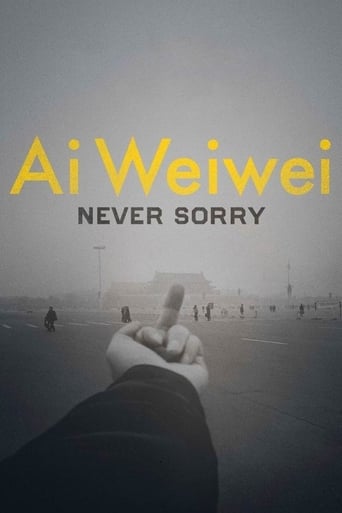













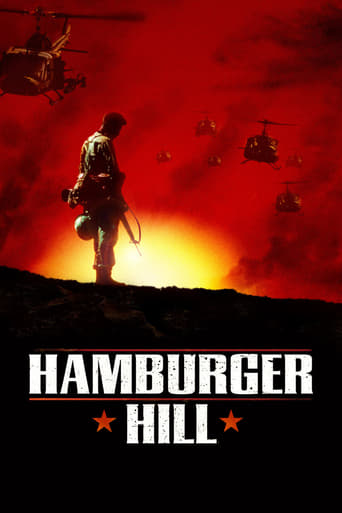













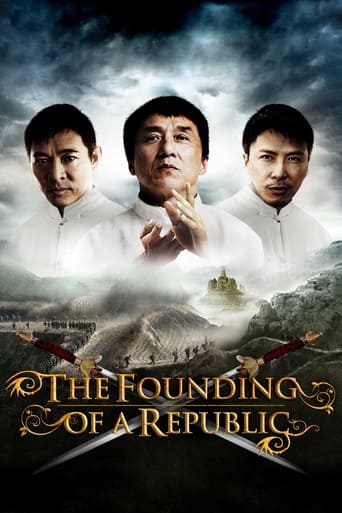






















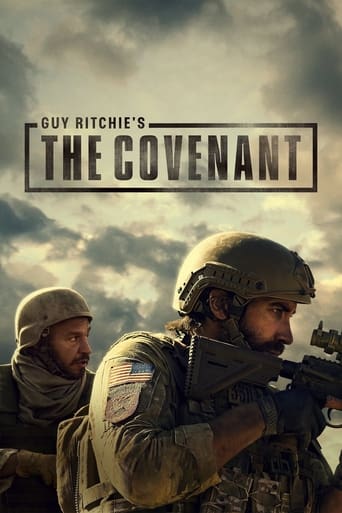

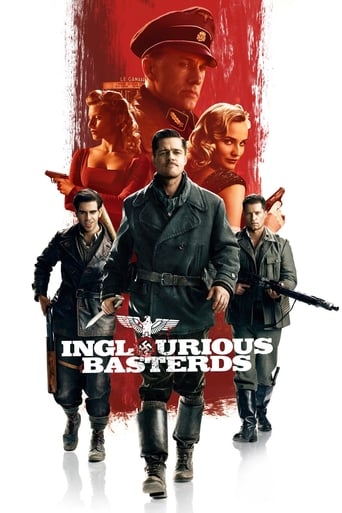
Yellow Earth
A Communist soldier is sent to the countryside to collect folk songs for the Communist Revolution. There he stays with a peasant family and learns that the happy songs he was sent to collect do not exist; the songs he finds are about hardship and suffering. He returns to the army, but promises to come back for the young girl, Cuiqiao, who has been spellbound by his talk of the freedom women have under Communist rule and who wants to join the Communist Army.